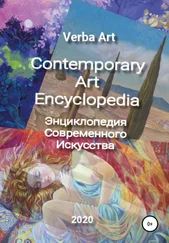A –
Are you falling prey to the myth of Tahiti?
B –
It’s not a myth, and you wouldn’t doubt Bougainville’s sincerity if you knew the Supplement to his Voyage.
A –
And where can one find this Supplement?
B –
Right over there, on that table.
A –
Won’t you let me borrow it?
B –
No, but we can go through it together, if you’d like.
* * *
The speaker is an old man. He was the father of a large family. When the Europeans arrived he looked upon them with scorn, showing neither astonishment, nor fear, nor curiosity. On their approach he turned his back and retired to his hut. Yet his silence and anxiety revealed his thoughts only too well; he was inwardly lamenting the eclipse of his countrymen’s happiness. When Bougainville was leaving the island, as the natives swarmed on the shore, clutching his clothes, clasping his companions in their arms and weeping, the old man made his way forward and proclaimed solemnly, ‘Weep, wretched natives of Tahiti, weep. But let it be for the coming and not the leaving of these ambitious, wicked men. One day you will know them better. One day they will come back, bearing in one hand the piece of wood you see in that man’s belt, and, in the other, the sword hanging by the side of that one, to enslave you, slaughter you, or make you captive to their follies and vices. One day you will be subject to them, as corrupt, vile and miserable as they are. But I have this consolation. My life is drawing to its close, and I shall not see the calamity I foretell. Oh fellow Tahitians, oh my friends! There is one way to avert a dreadful fate, but I would rather die than counsel you to take it. Let them leave, and let them live.’
Then turning to Bougainville, he continued, ‘And you, leader of the ruffians who obey you, pull your ship away swiftly from these shores. We are innocent, we are content, and you can only spoil that happiness. We follow the pure instincts of nature, and you have tried to erase its impression from our hearts. Here, everything belongs to everyone, and you have preached I can’t tell what distinction between ‘yours’ and ‘mine’. Our daughters and our wives belong to us all. You shared that privilege with us, and you enflamed them with a frenzy they had never known before. They have become wild in your arms, and you have become deranged in theirs. They have begun to hate each other. You have butchered one another for them, and they have come back stained with your blood. We are free, but into our earth you have now staked your title to our future servitude. You are neither a god nor a demon. Who are you, then, to make them slaves? Orou, you who understand the language of these men, tell us all, as you have told me, what they have written on that strip of metal: This land is ours . So this land is yours? Why? Because you set foot on it! If a Tahitian should one day land on your shores and engrave on one of your stones or on the bark of one of your trees, This land belongs to the people of Tahiti , what would you think then? …
‘Leave us to our ways; they are wiser and more decent than yours. We have no wish to exchange what you call our ignorance for your useless knowledge. Everything that we need and is good for us we already possess. Do we merit contempt because we have not learnt how to acquire superfluous needs? … Do not fill our heads with your factitious needs and illusory virtues. Look at these men. See how upright, healthy and robust they are. Look at these women. See how they too stand up straight, how healthy, fresh and lovely they are. Take this bow; it’s mine. Call upon one, two, three, four of your comrades, and together with them try to draw it. I draw it unaided; I till the soil; I climb mountains; I go through the forest; I can run a league across the plain in less than an hour; your young companions can hardly keep up with me, and yet I’m more than ninety years old.
‘Woe to this island! Woe to all present Tahitians and to those still to come, from the day of your arrival! We used to know but one disease, old age, to which men, animals and plants were all equally prey, but you have now brought us another. You have infected our blood … Wretched man. You must bear guilt, either for the ravages that will follow the deadly caresses of your people, or for the murders we shall commit to arrest the poison. You speak of crimes. Can you imagine any worse than yours? What is the punishment, where you come from, for the murder of your neighbour? Death by the sword. Where you come from, what is the punishment for the coward who poisons his victim? Death by fire. Compare your own offence to this second crime and tell us, scourge of nations, what punishment you deserve? […]
Go away now, unless your cruel eyes relish the spectacle of death. Go away, leave, and may the seas that spared you on your voyage absolve themselves of their guilt and avenge us by swallowing you up before your return. And you, inhabitants of Tahiti, go back to your huts. Go back and let these unworthy foreigners hear nothing as they depart but the roaring waves. Let them see nothing but the foaming spray as it whitens a deserted shore.’
He had scarcely finished speaking before the crowd of natives disappeared. A great silence stretched over the island. Nothing was to be heard but the dry whistling of the wind and the muffled breaking of the waves, all the length of the coast. It was as if the air and the sea had absorbed the man’s words and were moved to obey him.
B –
Well now! What do you think of that?
A –
The speech seems fierce to me, but in spite of what I find abrupt and primitive, I detect ideas and turns of phrase which appear European.
B –
Bear in mind that it’s a translation from Tahitian into Spanish, and from Spanish into French. The previous night the old man had made a visit to that same Orou to whom he called out the next day, in whose home knowledge of the Spanish language had been preserved for generations. Orou had written down the speech of the old man in Spanish, and Bougainville had a copy of it in his hand while the old man spoke.
A –
I can now understand only too well why Bougainville suppressed this fragment.
IIC10 Johann Gottfried Herder (1744–1803) from A Monument to Johann Winckelmann
Herder is best known for his contribution to the development of the philosophy of history (cf. IIIA1), and his work marked a shift away from the prevailing rationalist and universalist commitments of the Enlightenment. His encounter with Goethe in 1770 led directly to the formation of the Sturm und Drang movement in German art and literature, and indirectly to Romanticism. Another component of these changes was a scepticism about the priority of the classical Greek heritage in art, and a developing interest in non‐classical forms including the Gothic, non‐Western arts, and folk culture. In 1778, Herder wrote a tribute to Winckelmann (‘A Monument to Johann Winckelmann’), in which he took the opportunity to dissent from Winckelmann’s insistence on the autochthonous development of Greek art, and the way in which he had ahistorically applied a model of Greek art to assess Egyptian art and thereby judge it inferior. For Herder this is to fail to take account of Egyptian art’s grounding in a very different set of values than the Greek. He thus begins to open up, already in the late eighteenth century, a surprisingly modern sense of cultural relativism. The present extracts are taken from Denkmal Johann Winckelmann’s: Eine ungekrönte Preisschrift Johann Gottfried Herder’s aus dem jahre 1778 , von Dr. Albert Duncker, Verlag von Theodor Kay, Kassel, 1882, pp. 41–44 and 48–51. They were translated for the present volume by Richard Elliot.
Читать дальше












